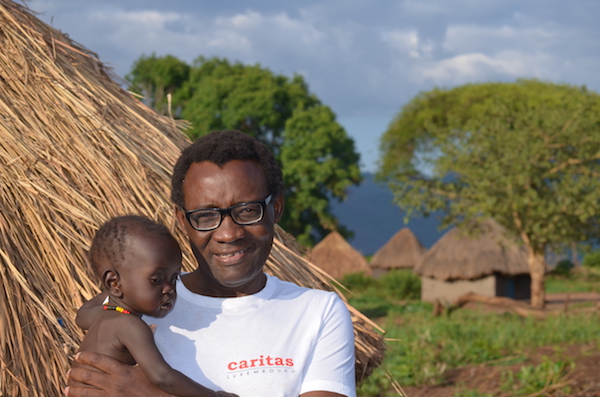
Caritas Luxembourg has issued an urgent appeal for donations to help millions of people survive a vicious famine in South Sudan.
Severe malnutrition and extreme debilitation dog thousand of people arriving at relief centres, especially the children.
This famine has been fed by climatic factors — the rains failed last year resulting in a drought and lack of seeds — that have exacerbated the problems already created by a war that has spread throughout the country.
This war has resulted in large numbers of deaths and massive population displacements. Around 1.9 million people are internally displaced and a further 1.8 million are refugees in neighbouring countries.
Farms and whole villages have been looted by armed groups during the conflict, says the organisation, and almost all agriculture-related activity has halted. As a result, families cannot find basic foods such as maize, beans or millet. Where these staples are available, the prices are now so high that they are out of reach for most families.
The war has also increased insecurity on the roads, making access to the areas most affected by famine extremely difficult. Soon, if the rains come, these areas will become completely inaccessible except by helicopter.
"People most affected by famine are also the most vulnerable, including pregnant women and children under five. The impact of lack of food is much more important to them. In some areas, general malnutrition affects 30% of children”, said François Nzabahimana, an employee of Caritas Luxembourg, who has been working in South Sudan since May 2016 to coordinate all the activities of Caritas Luxembourg’s food aid.
Caritas Luxembourg has been fighting hunger in South Sudan for many years, with the priority of rehabilitating nutrition centres.
"In villages and health centres we distribute food such as corn, sugar or beans, vitamin biscuits and vitamin A. The most malnourished children are transferred to specialised health centres where they can be hospitalised and receive adequate therapeutic care,” added Nzabahimana.
But to overcome the malnutrition of women and children, it is also important to follow up on the long term. Caritas Luxembourg say they conduct regular family visits -- during which children are weighed and symptoms of other diseases linked to malnutrition detected -- and mothers are also advised on the preparation and hygiene of foods used for children.
"It's one of the most painful missions I've ever seen. Living a situation of widespread famine is extremely hard. Recently, I supervised the departure of a load of grain. This is a real relief because, at present, it is almost impossible to obtain it. These cereals will allow us to make porridge for the malnourished children of the region,” said Nzabahimana.
Image: François Nzabahimana in South Sudan. © Caritas Luxembourg








